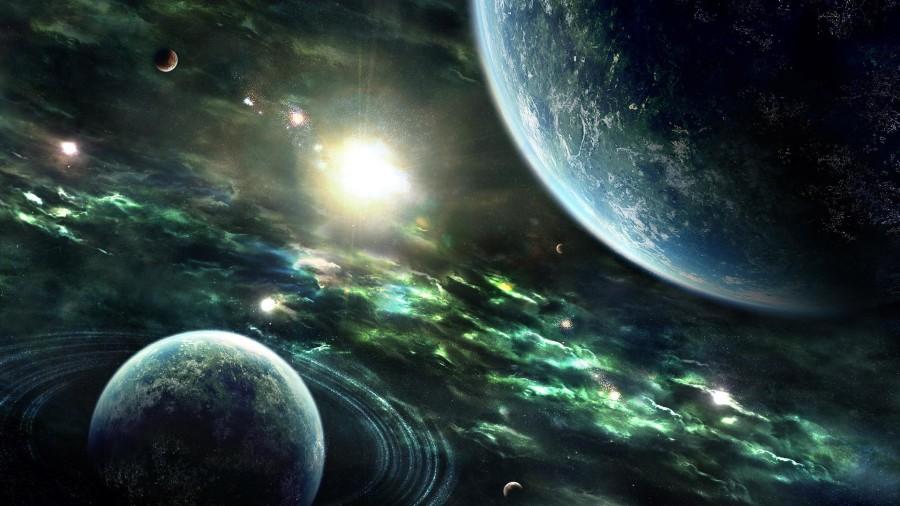Seriously people, “Avatar” is not that sweet.
Actually, it left me quite bitter after leaving the theater. Sure, the visual imagery of the film was stunning, the computer animation top notch, but the story, the racial paternalism and the white savior mentality that permeated the film left me feeling a bit let down.
Overall, “Avatar” has a troubling racial subtext, which ultimately overshadows its epic 3-D effect. Let me explain (spoilers ahead so read with caution).
The Na’vi are depicted as tall blue people with Native American-like war paint and exotic braids, beads and feathers (most of whom are played by actors of color) in contrast to the humans in the film who are primarily played by white actors (Ironic … or not?)
The plot is basically stolen from a mix of “Dances With Wolves” and “Pocahontas” (throw in a little “Fern Gully” and you’re set, basically.)
The story has been one we’ve heard over and over. In “Avatar” we just have another variation of a plot in which a tribe of people depend on a heroic, white male protagonist who has “befriended the natives” to save them from their ugly oppressors.
It’s a continuation of Hollywood’s racialized tradition, one which glorifies racial whiteness at the expense of a crude, unimaginative depiction of non-white peoples.
Even if you want to insist that the movie is not racist, you would still have to concede that it is racially uninventive and dumb.
It keeps us stuck in a plot that gets us nowhere, reifying conceptions of the colonized, “primitive” native versus the white, technologically advanced savior.
This only further perpetuates ideas that sustain a racist society. “Avatar” is a film about race, but ultimately one told by the perspective of the dominant race.
There’s something suspicious about this. When will we have a story told by the perspective of the Na’vi?
Simply stated, Cameron’s movie lacked imagination. His lazy racial stereotyping provided a story we’ve seen and heard for ages, one of the heroic white guy saving a bunch of poor “savages” after he realizes his (and his race’s) faults.
For once, I’d like to see a film where the non-white peoples save themselves. Now that would be creative.
Desiree Valentine is a senior in the College of Communication





Ewya • Feb 9, 2010 at 8:03 pm
I would like to discuss the arguments about race, Desiree. You seem to be only concerned with how the movie portrays black people, and not other minorities. While I will concede that the “tree scene” undoubtedly alluded to the stereotype of the “savage” African tribe, the stereotypes of Native Americans is much more troubling. However, your biases seem to ignore this fact. In fact, in an above post, you said, “the majority of human characters were white (none of the main human characters were black, if I recall), so there’s something ridiculously suspicious about this.” I don’t know why you’re focusing on poor portrayal of just one minority. Maybe it’s because you forgot that one the most redeeming human characters is a Latina – Trudy, the Marine pilot – played by Michelle Rodriguez, or “Ana Lucia” if you’re a LOST fan; or not, there probably aren’t enough African Americans on the island…
Desiree • Feb 8, 2010 at 11:22 am
goldeneagle01–did you not see that I wrote that I didn’t think the movie was “racist” because when you start saying that it just becomes a back and forth game of calling the other racist (like you did to me in your post). I’m not interested in figuring out “who’s the REAL racist!” (aha!) but rather, I mainly want us to think about the implications familiar stories like these have on society. Believe me, I don’t want to make you all defensive when I cite the “white savior” mentality throughout the movie. I mainly pointed that out because it is the story we hear OVER AND OVER in hollywood. It is a story that glorifies racial whiteness at the expense of a crude, simplistic depiction of non-white people. I think we all should demand more from hollywood and pop culture in general. The “white savior” is not bad in and of himself, but the framing and the perspective of a film that takes as its central figure this “white savior” covers up all other stories that have yet to be told. I want to hear of the stories that don’t include a “nice white lady” (http://www.youtube.com/watch?v=ZVF-nirSq5s) coming in and saving the poor black kids and instead see a film about the real life, ongoing, struggles of urban society told from the perspective of those who actually live there–“The Wire” might be a good example of this.
goldeneagle01 • Feb 8, 2010 at 10:09 am
Once you go down the historically speaking road, you can use that to justify assumptions about any culture. It is interesting that you cite history for slightly justifying Cameron’s depiction of white people in the movie, but when looking at Cameron’s possible depiction of black people, it is covert racisim. It is also interesting that you depict the main white character in the story as a “white savior” when he could also be seen as being a person who understands the gross immorality of his actions and that of his society, and now believes that the society of those he once desecrated is actually far superior to that of the one he belongs too. Perhaps it is you that has the slightly racist overtones to take a movie that was made clearly for commercial gain and assume that it is inherently racist. And I would appreciate it if you cited why you think we live in a current racist society.
Desiree • Feb 8, 2010 at 9:49 am
I don’t think there’s any harm in looking “too deeply” into anything. It’s called being a conscious, reflective individual. And yes, to an extent, I do agree, MUgrad07, that the movie was uninventive in its depiction of white people, too–but you see, whiteness stands in for “human” in this film, since as I mentioned, the majority of human characters were white (none of the main human characters were black, if I recall), so there’s something ridiculously suspicious about this. Especially when you relate this to most of the Na’vi main characters being persons of color! And honestly, historically speaking, white people HAVE been cruel, warmongering, and negligent of other cultures (slavery, colonization, transnational corporations, etc), so while the movie was generally uninventive when it came to both races, creating monolithic understandings of each culture, I wouldn’t say it was “racist” towards white people and I wouldn’t say it was “racist” toward black people. That would be too simplistic an understanding. What I’m mainly arguing is that we should be suspicious of these familiar plots and the effect they have in our current racist society.
MUgrad07 • Feb 8, 2010 at 9:17 am
I think we’re looking a little too deeply into avatar. On the flip side, couldn’t you also say that this movie is racist towards white people, as depicting them as cruel, warmongering, and negligent of others cultures?
Desiree • Feb 7, 2010 at 1:33 pm
I’ve seen the movie, Ewya (in 3d, might I add). I actually think you’re simplifying both my argument as well as the film’s plot. I said nothing about Neytiri not being a strong female lead–indeed I think she was. (There’s a whole host of gender stuff we can analyze, but that was obviously not my focus in the article–so please, bear with me, I get like 300 words). If you want to talk about gender, let’s. I really liked how Neytiri was the one who showed Jake how to become a warrior/hunter/whatever (I can’t remember exactly what they called it in the movie). She wasn’t just simply the native-love interest, she had a very active role in her relationship with Jake. There was that odd “sex” scene though where there was talk of Jake having to decide to “take her as his wife” kind of thing, but I appreciated his response which was somewhere along the line of “we both have to come to this decision together.” So, in sum, gender is another fascinating lens through which we can look at the film. But I think my arguments about race still stand. Would you like to engage those, or no? There is an interesting dynamic, I will concede, in the end, with the mix of animals/nature/spirit that come in at the last minute and help save the Na’vi, however the story is still pretty set, following Jake, the main character, and his mobilization of the Na’vi. It’s mostly about perspective and framing–Simply, Cameron/the writers could have done a whole lot more here.
Ewya • Feb 6, 2010 at 8:13 pm
If you had actually seen “Avatar”, you would know that your article does not contain actual spoilers, just an oversimplified summary and a few unoriginal arguments that were probably culled from some rottentomatoes reviews. Like English Major, I felt that Neytiri was a very strong female character, and that the wildlife is primarily responsible for saving the Na’vi Surely someone as intelligent as yourself would have come to the same conclusion – again, if you had seen the movie.
Desiree • Feb 6, 2010 at 9:00 am
Thanks, English major, you bring up some really interesting points. And I like that reading of the ending. Surely, in a sense, the Na’vi save themselves through their protector spirit; I think it’s just the framing of the film, and the way that it is quite literally told through the voice of Jake, that makes it still all about the white guy saving the poor natives–which is fine, just something we’ve seen over and over (which perhaps doesn’t make it ‘fine’ anymore…). So if we’re talking about a creative, imaginative story line (and I think that is what a movie should be judged on amongst other things), Avatar just doesn’t make the cut.
English major • Feb 4, 2010 at 3:50 pm
It does seem that there is a white savior plot in “Avatar,” with Jake swooping in at the end, and the Na’vi staring in astonishment at their new “Toruk Maktau.” As if they automatically forget how he betrayed them and helped destroy their home.
But on the other hand, the way I interpret the ending, it’s actually the nature spirit, Eywa, who wins the battle–it’s the creatures that rush in and defeat the technologically-advanced humans. So, in a sense, it IS the Na’vi who save themselves–their protector spirit, who embodies their entire world, and their ancestors, is the one who saves them from the humans. Without that, Jake’s contribution of a few machine guns and a walkie-talkie would have done nothing.
Plus, in the end, it’s Neytiri who saves Jake, and on that note, I feel she is one of the strongest female lead characters I’ve seen in a long time.
Desiree • Feb 4, 2010 at 9:02 am
Two points to “Broseph”: First, love that you just assumed I was male (does that mean I’m a good writer?! *blushes*) and second, I find your ignorance hilarious–if you’d read the entire article you’d see my name at the bottom. Now why didn’t you use your real name, bro? For shame.
Broseph • Feb 3, 2010 at 8:45 pm
HAHAHA, I can’t believe this is what you ACTUALLY thought after you saw Avatar. Lighten up bro. I agree that the story line was a bit unoriginal, but enjoy it for what it is. “Cameron lacked imagination” ARE YOU KIDDING? You’re telling me that you thought Avatar lacked imagination? He created an enitre new planet, plants, creatures, the na’vi, and their culture from his imagination? Guess it wasn’t enough. Now I understand why your real name isn’t tagged at the top of this horrible article. Get real son.
Bob Graf • Feb 3, 2010 at 11:08 am
Desiree,
I agree with all of the above and would like to add another point. The “white savior” convinces the natives that only violence against the white oppressors will bring them peace. Yeah, like the white guys would not return with even more weapons of mass destruction! Violence brings peace is a an American white guy mentality that many buy into. It has never worked and is a deadly and depressing message, even for a movie.
Bob Graf